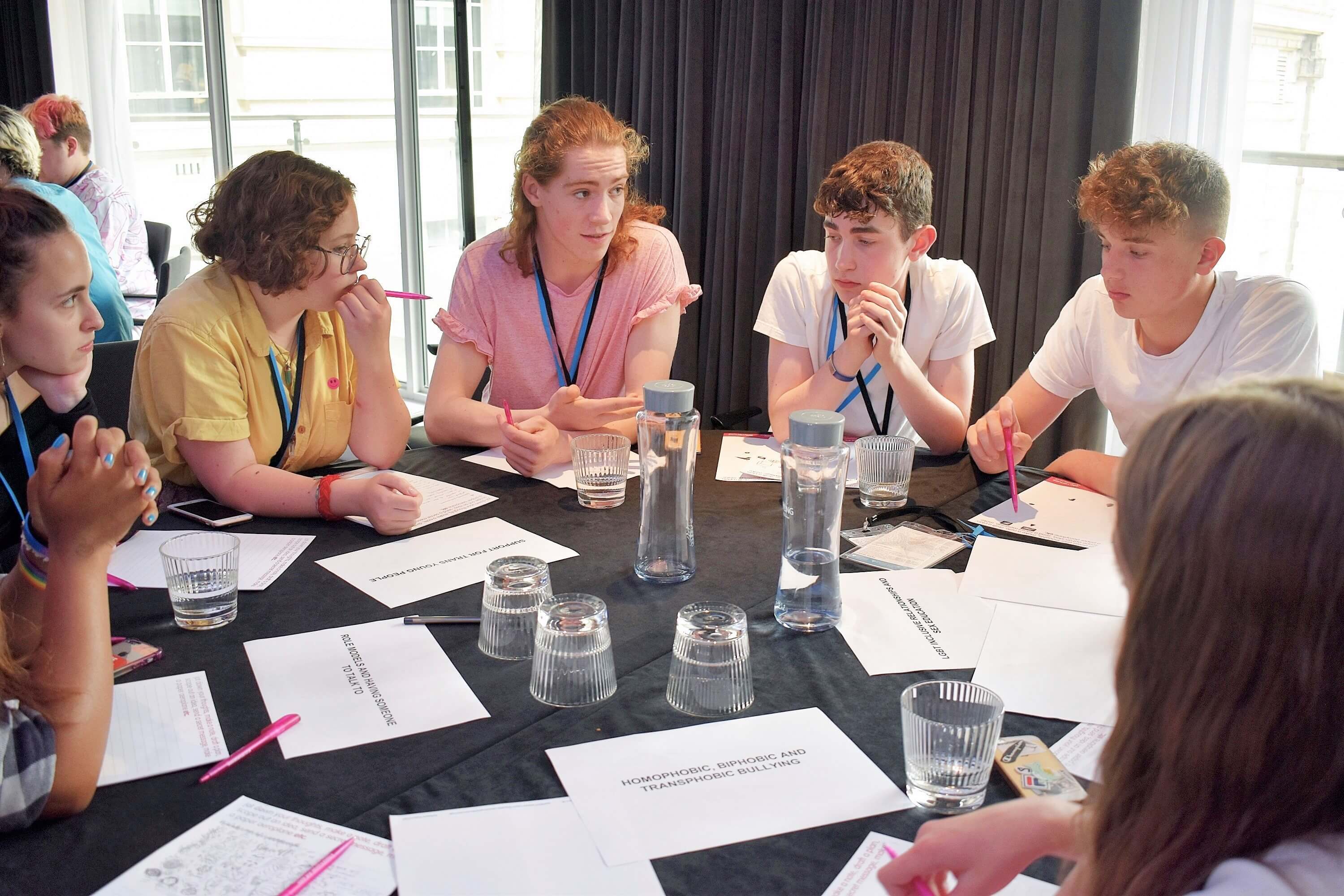How we are tackling a legacy of LGBT discrimination in schools

The introduction of Section 28 in 1988 had a profound impact on the approach schools and colleges took to LGBT inclusion in the UK.
This law made it illegal for schools and colleges to ‘promote homosexuality’, and it remained in place until 2000 in Scotland and 2003 in the rest of the UK. Over three decades on, we are in a better place, but the fight for equality is far from over.
A minority of education staff, including members of Teachers Against Clause 28, did find ways to build LGBT inclusion and visibility into their teaching. This was easier in English Literature and Drama lessons, where books and plays with LGBT characters could be used in the curriculum.
Unfortunately, most children and young people were unable to benefit from this inclusive approach and as a consequence a whole generation of LGBT people suffered.
I am a member of that generation and, while I had some wonderful supportive school friends, I still felt isolated. There was no mention of LGBT people at school because my teachers weren’t allowed to mention them.
While I had some wonderful supportive school friends, I still felt isolated. There was no mention of LGBT people at school because my teachers weren’t allowed to mention them.
When I was bullied, teachers did not acknowledge that it was because I am an LGBT person.
My Relationships and Sex Education lessons did not provide information that was relevant to me, because my teachers couldn’t teach in an inclusive manner.
My sources of information about LGBT people were limited to TV programmes such as This Life and Queer as Folk (which I was far too young to be watching) and homophobic, biphobic and transphobic articles in the newspaper.
Consistently seeing and hearing anti-LGBT messages in the press, from my peers, and on the street had a huge impact on my self-esteem. The lack of positive representation not only made me feel alone at the time, it also limited my long-term aspirations.
When I was 15, I wanted to be a primary school teacher. However, because I was LGBT and didn’t wish to hide it, I dismissed teaching as an option – I assumed that nobody would give me a job in a school and that parents wouldn’t want me teaching their children.
When I was in my mid-20s, I did finally become a teacher. By this point, the Equality Act was in place and Section 28 had long since been repealed.
After spending nearly a decade working as a teacher, I now work in Stonewall’s Education and Youth team. Stonewall, along with other organisations, campaigned hard to bring about the repeal of Section 28.
Since then, we’ve seen a transformation in the way schools and colleges approach LGBT inclusion, with many actively seeking out ways to support their LGBT students and make the adjustments needed to help them feel welcome.
We’ve seen a transformation in the way schools and colleges approach LGBT inclusion, with many actively seeking out ways to support their LGBT students and make the adjustments needed to help them feel welcome.
And last year after years of campaigning, we celebrated a historic announcement on LGBT inclusion in English schools. From September 2020 all secondary schools in England will be required to teach pupils about sexual orientation and gender identity, and all primary schools will be required to teach about different families, which can include LGBT families.
Children and young people now have opportunities to see LGBT role models in schools, some of whom might be their own teachers.
However, Stonewall’s School Report (2017) shows that there’s still a way to go, and that we haven’t yet escaped the shadow of Section 28. Nearly half of LGBT students are bullied at school or college for being LGBT, and two in five LGBT students have never been taught about LGBT issues at school or college. More than two in five trans students said that staff at their school or college didn’t understand what ‘trans’ means.
Nearly half of LGBT students are bullied at school or college for being LGBT, and two in five LGBT students have never been taught about LGBT issues at school or college.
At Stonewall, we help schools and colleges to become more LGBT inclusive and work to improve the lives of LGBT children and young people, whether they’re just starting out or seeking to improve their approach in line with current best practice.
We offer resources and a range of training opportunities for education professionals, helping them to tackle anti-LGBT language and bullying, challenge gender stereotypes, and ensure their setting is trans inclusive. Through our School & College Role Models Programme, we enable secondary schools and colleges ensure that students hear about the lives of LGBT people.
Alongside our lesson packs for both mainstream and special schools and colleges, we’re especially proud to share our free LGBT History Month lesson packs for mainstream primary schools, secondary schools and colleges, and special schools and colleges.
LGBT History Month is now celebrated by thousands of schools, and some school and college LGBT groups even march at local Pride events.
All this means that nowadays lots of LGBT children and young people don’t have the negative experiences that I had at school.
But Stonewall, we won’t stop working until all LGBT children and young people experience acceptance without exception – at school, at college, and throughout their lives.

